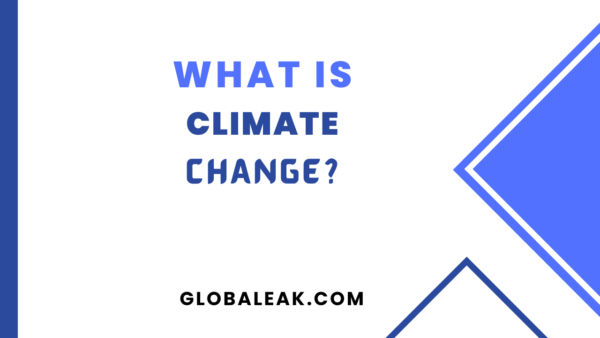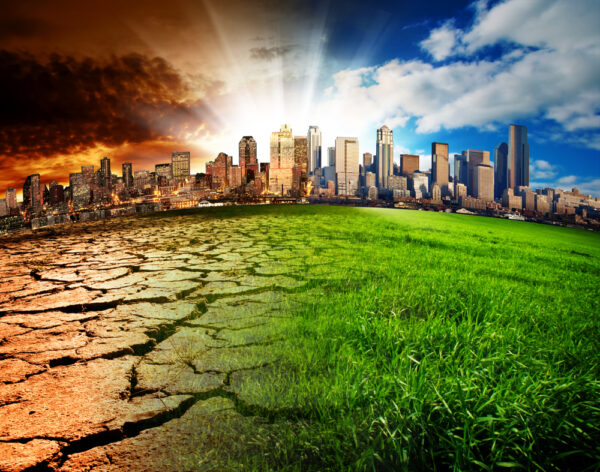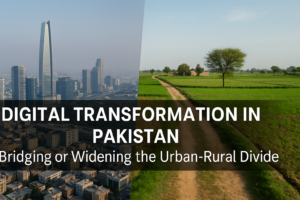Climate change is a phenomenon and most pressing global issue facing humanity today. It refers to the long-term alteration in Earth’s climate patterns, including temperature, precipitation patterns, and the frequency and intensity of extreme weather events. It is caused by a variety of factors but the major one is the increasing concentration of greenhouse gases in the atmosphere, which traps heat and warms the planet while other factors including deforestation, excessive usage of fossil fuels, water and soil pollution, plastic, and other non-biodegradable waste, and wildlife and nature extinction.
Impacts of Climate Change
The effects of climate change are water scarcity, intense droughts, rising sea levels, severe fires, flooding, hurricanes, and catastrophic storms, among other things.
One of the most concerning impacts of climate change is the threat it poses to food security. As temperatures rise, the amount of arable land suitable for agriculture decreases, while changing weather patterns make it harder for farmers to grow crops. This, in turn, can lead to food shortages and rising prices, which disproportionately affect the world’s poorest populations.
Another major impact of climate change is the rising Sea level due to the ice caps in the Arctic and Antarctic melting at alarming rates. These changes have serious implications for both human populations and the natural environment.
Another major impact of climate change is the loss of biodiversity. As ecosystems change and species’ habitats are altered, many animals and plants are struggling to adapt. This can lead to extinction or reduced population sizes, which can have ripple effects throughout the food chain.
The most dangerous consequence of climate change is on human health. As temperatures rise, diseases such as malaria and dengue fever are spreading to new areas, and air pollution from burning fossil fuels is causing respiratory problems for people around the world.
In short, the impacts of climate change are far-reaching and can be felt in every corner of the world. Rising temperatures and changing precipitation patterns have already led to more frequent and severe heat waves, droughts, floods, and storms. These extreme weather events can cause significant damage to infrastructure, disrupt food supplies, and threaten public health and safety.
How to Combat Climate Change?
The effects of climate change are not limited to the environment. They also have significant economic and social consequences. This, in turn, can lead to significant economic losses and displacement of populations. Thus, climate change is a serious issue that needs to be addressed. It is important to take steps to reduce its effects, such as reducing the amount of carbon dioxide in the atmosphere, reducing the amount of energy consumed, and recycling.
Reducing emissions alone, however, is not enough. It also demands to adapt the changes that are already occurring and that will continue to occur. This includes investing in infrastructure that can withstand extreme weather events, improving water management systems, and promoting sustainable agricultural practices.
In order to combat climate change, it is crucial to avert overusing natural resources and not buy or use items made from animals. Additionally, it is important to reduce the amount of carbon dioxide in the atmosphere by planting trees, using renewable energy sources, and reducing the amount of energy consumed. It is also vital to reduce the amount of waste produced and to recycle whenever possible.
Educating people about climate change and the importance of taking action to reduce its effects is amongst the most crucial step to take on. People should be aware of the consequences of climate change to Earth and the importance of taking steps to reduce its impact. Additionally, people should be encouraged to take part in activities that help to reduce the effects of climate change, such as planting trees, reducing energy consumption, and recycling. By taking these steps, we can help to reduce the effects of climate change and ensure a better future for our planet.
Challenges of Addressing Climate Changes
One of the most significant challenges in addressing climate change is reducing greenhouse gas emissions. The primary source of these emissions is the burning of fossil fuels for energy production, transportation, and industrial processes. There is a growing recognition that needs to transition to cleaner and more sustainable forms of energy, such as wind, solar, and hydro-power. However, many industries and businesses are resistant to change because they fear it will negatively impact their profits. This makes it difficult to transition to renewable energy sources and implement sustainable practices.
Climate change is a complex issue that requires significant political will and international cooperation to address. Unfortunately, many political leaders and governments are not fully committed to taking action on climate change, which makes it difficult to achieve meaningful progress.
Another major challenge in addressing climate change is that many people still do not fully understand the severity and urgency of the climate change crisis. This lack of awareness and education makes it difficult to mobilize public support for climate action.
It is also imperative to note that climate change is a global issue that requires global action. Countries must work together to develop and implement policies that can effectively reduce greenhouse gas emissions and support the transition to a low-carbon economy. This includes international agreements such as the Paris Agreement, which aims to limit global warming to well below 2°C above per-industrial levels.
Read also: Causes of Water Crises, Its Impact, and Possible Remedies
📍 English Language Educator | Blogger & Content Strategist | 7+ Years in Educational Blogging
Nosheen Bashir is a dedicated English teacher and experienced blogger with over seven years of expertise in content creation and educational writing. Passionate about language, literature, and effective communication, she combines her teaching experience with blogging skills to create insightful, research-backed content that helps learners and educators alike.
🔹 Expertise & Achievements:
✔ English Language Education: A skilled educator with years of experience in teaching English grammar, literature, and communication skills to students of varying levels.
✔ Educational Blogging: Running a successful blog for 7+ years, delivering well-structured, engaging content on language learning, writing techniques, and academic success.
✔ SEO & Content Strategy: Specializes in creating high-ranking, authoritative articles that follow Google’s EEAT principles, ensuring content that is both informative and search-friendly.
✔ Student-Centric Approach: Committed to making English easier, engaging, and accessible, helping readers and students improve their language proficiency.
🚀 With a passion for teaching and writing, Nosheen Bashir is dedicated to crafting educational content that empowers students, teachers, and language enthusiasts worldwide.











